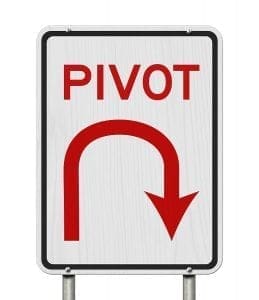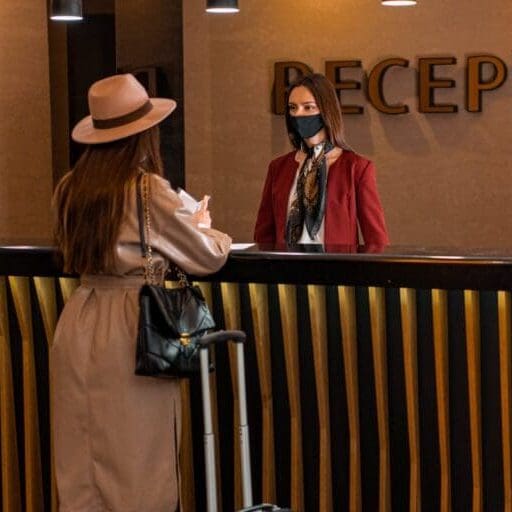 We’ve known Andrew Carey, CEO of Newport Hospitality Group (NHG) for over a decade and had the opportunity to perform an in-depth analysis on how the company and its managed properties were able to remain profitable through the pandemic. As background, NHG is a property management and development company with over 50 properties under its belt, all in the United States. The company added 11 new managed hotels in 2020, representing a growth of 27.5% during the pandemic.
We’ve known Andrew Carey, CEO of Newport Hospitality Group (NHG) for over a decade and had the opportunity to perform an in-depth analysis on how the company and its managed properties were able to remain profitable through the pandemic. As background, NHG is a property management and development company with over 50 properties under its belt, all in the United States. The company added 11 new managed hotels in 2020, representing a growth of 27.5% during the pandemic.
“What we learned from the 2008-2009 downturn was that you don’t hunker down, you double down,” said Carey. “And we’ve adapted the playbook we developed 12 years ago to today’s situation. We saw an opportunity to have our hotels be first back into the market following the lockdowns in Spring 2020 by not furloughing management and instead reinvigorating our engagement with the on-property teams so that they could quickly pivot in response to any week-over-week COVID-19 change.”
Furloughs may not be best
Even in the face of recovery later this year, hoteliers must adopt a perpetual opportunity-seeking attitude because we just can’t prognosticate exactly where the business will come from. In particular, the case study of NHG shows that furloughs are but a temporary salve, one that doesn’t set a hotel up for success later on down the road when revenue opportunities start to pop back up.
Pre-pandemic, NHG was firing on all cylinders with occupancy levels blooming in calendar year 2019. Looking back on Q2 and Q3 of 2020, the STR data reveals that its properties were able to maintain 6% more RevPAR than their competitive markets. Key to this was that, in the spring, the company focused and retained its operations team rather than reducing headcount to save money.
They realized that shrinking local hotel teams would be unable to manage the coming sales and operational challenges presented by the pandemic and that the NHG corporate teams would need to pick up the slack. The relationship between managed hotel and corporate oversight was thus the opposite of laissez-faire, with executives moving to proactive virtual visits and transforming the sales position into a remote desk job to stay top-of-mind with clients.
Next, by not putting all of its onsite managers on short-term leave during the dark days of March and April 2020, NHG properties were able to diligently work towards setting up new safety guidelines before competitors were able to, and even as those protocols were still evolving. This meant that once a staged reopening order had been issued, NHG-managed properties were already set to welcome guests and they were ready to greenlight a highly targeted ecommerce advertising campaign to maximize transient bookings from both direct and OTA channels.
Top four lessons
Based on our conversation with Carey, here are four key pieces of wisdom to take away from NHG’s success in calendar year 2020:
1. Proactive versus reactive.
You can’t want for direction from the brand; you have to be continually thoughtful about what other leaders are doing. Having fewer immediate needs due to lack of occupancy simply means that now is the time to add value in anticipation of greener pastures ahead. Businesses need to actively plan for the next phase rather than cocoon in fear.
2. Get revenue by setting up the ‘yes’.
In order to be ready for any shift in customer demand you have to map out each operation well in advance. If you want to attract displaced travelers or frontline workers – as we saw this past spring – you need to already have designated room sections where isolation and no-contact stays are enabled. If you are still ‘in the process’ or considering a move into any of these segments, the business will have already gone elsewhere.
3. Never forget your onsite amenities.
Carey noted that having a restaurant open downstairs is a huge draw – even in the age of Uber Eats, Grubhub, SkipTheDishes and numerous other app-based ordering platforms – because people want to escape the confines of their rooms to dine. Being first back into the market therefore meant being the first hotel in a given territory to reopen its F&B outlets, giving each property a strong competitive advantage for reservations.
4. Triple your executive communications.
Forcing an outright shutdown in some territories left a bad taste in many owners’ mouths and trust needs to be restored amongst individual hotel owners, multinational corporate brands and regional management firms. For the latter entity, top-level property engagement can help to resolve this by giving onsite associates the confidence they need to do their jobs effectively, which is then paid forward in the form of better guest service and more revenue to thereby safeguard owners’ interests.
This article may not be reproduced without the expressed permission of the authors.































